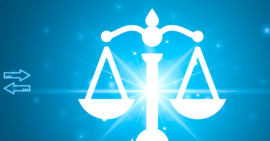Since the Global Financial Crisis in 2008, the legal market worldwide saw alternative legal services providers proliferate and a Cambrian-style growth of legal innovation initiatives. Economics explains only a part of the narrative. Globalisation, regulatory reform, technology affordability, and changing attitudes about legal careers and the workplace all contributed immensely. Lawyers have faced unprecedented competitive challenges, testing their ingenuity and ethical resolve.
Managing change in an interconnected, fast-changing business environment is now an essential skill of legal teams. Yet, at the individual level, burn-out among lawyers and law firm staff continues to plague the profession. Is this simply a price of success or is there a more robust way to grow? Surely there is a model of professional development that supports wellness in line with adaptability.
How can we prepare new graduates and students for practice in the 2020s and 2030s? Legal education grounded in mindfulness ethics, examining the intersection of global lawyering and creativity in legal practice could provide answers.
What is mindfulness ethics?
With its tradition stemming from Buddhism and meditation, mindfulness is about having intensive awareness of one’s senses and feelings in the moment, without interpretation or judgment.
A mindful perspective needs an open mind. Adopting it effectively is like sleeping well. It requires a calm emotional state, so exertion can be counterproductive to achieving it. Mindfulness ethics is the application of this philosophy. Incorporating mindfulness into decision-making can promote ethical intentions and behaviour through its emphasis of self-reflection and emotional regulation.
Where are we seeing law students reap the benefits of mindfulness? Berkeley Law School and Harvard Law School have run mindfulness programs relating to alternative dispute resolution and legal practice for several years. Courses like these provide a lens through which we can examine how practitioners could develop in well-rounded and empathetic ways. This would be particularly relevant to legal practices that emphasise creativity and collaboration.
Personal development benefits of mindfulness
According to a report released by the International Committee of the Red Cross on World Mental Health Day on October 10, 2020, the pandemic has negatively impacted the mental health of 51% of the 3,500 respondents who participated in a survey.
The factors shaping professional resiliency require reflection to prepare practitioners for the post-COVID-19 era. Anxiety and depression in the legal profession have long been issues for wide concern. Yet, as The American Lawyer recently reported, the pandemic has added pressure to the mental health of legal practitioners, as they have to address issues arising from financial insecurity, remote working and social isolation.
Practice trends that have accelerated since the onset of COVID-19 may continue long after the pandemic is over. Mindfulness could support resilience in the legal profession in the decade ahead, amid global economic, social and political uncertainties.
Mindfulness ethics for focus and introspection
In the 2020s, technological development and other global trends will undoubtedly continue to accelerate changes in the professional environment.
“The practice of mindfulness is one way to provide clarity and focus, and can even be applied to how the legal profession interacts with technologies and innovates.”
– Sebastian Ko, Founder, A.I Vermont
Our approach to innovation has a lot to benefit from profession-wide introspection. For example, the development and use of legal technologies to support legal practice is often blurred with the scope and standard of our professional duties as lawyers. Lawyers who practice mindfulness may find that things become clearer on reflection and use technologies to empower them and their clients, rather than fearing it could take over their jobs.
Nevertheless, lawyers ought to assess their risks in contemporary legal practice. There is a plethora of legal, ethical, operational and technical risks to manage. Since social distancing measures have commenced, many practices have become heavily reliant on cloud-based, virtual presence and remote access technologies. If misunderstood, each of these factors, for example, become overwhelming when combined with stress and pressure, or even contribute to it.
It is clear that technology-enabled practices are here to stay. While mindfulness ethics does not directly provide a risk management strategy, it does provide a mindset to analyse risks. A meaningful, durable response to legal practice risks could prompt lawyers to regain focus and thus enhance strategic decision-making.
Adding empathy into the mix
Client-centricity and human design have become the zeitgeist of the global legal services market today. These concepts, as legal design thinking and allied fields have championed, are fundamental to creative problem-solving and development of innovative solutions.
As lawyers innovate their practices, they may find themselves pushing against ethical norms in certain circumstances in discharging their duties to clients. Adopting a mindful approach to understand the various stakeholders involved may produce more balanced decision-making, which would help resolve underlying ethical tensions. Indeed, empathy is a critical part of mindfulness and underpins all human design methodologies.
“Clients look to lawyers as trusted advisors and fiduciaries. As stewards and custodians of this special relationship, lawyers must show fortitude and remain calm under pressure. They must learn to make quality decisions in real-world contexts.”
– Sebastian Ko, Founder, A.I Vermont
Through the application of mindfulness ethics, professionals can enhance their well-being and strengthen their personal and work relationships. These are vital supports for mental foundations that would empower practitioners to navigate an increasingly complex world and help them reduce risks of unethical behaviour. This is what the profession needs from the lawyers of tomorrow – to learn today.
To hear more of Sebastian’s musings on the legal profession in relation to innovation, listen to episode one of the Thomson Reuters’ Transforming with Legal Tech Podcast.


